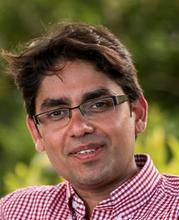QUANTITATIVE RESEARCH METHODS WORKSHOP: Jasjeet S. Sekhon (UC Berkeley), “Using Machine Learning to Adjust Treatment Effect Estimates in Randomized Experiments”

We provide a principled way for investigators to analyze randomized experiments when the number of covariates is large. Investigators often use linear multivariate regression to analyze randomized experiments instead of simply reporting the difference of means between treatment and control groups. Their aim is to reduce the variance of the estimated treatment effect by adjusting for covariates. If there are a large number of covariates relative to the number of observations, regression may perform poorly because of overfitting. In such cases, the Lasso may be helpful. We study the resulting Lasso-based treatment effect estimator under the Neyman-Rubin model of randomized experiments. We present theoretical conditions that guarantee that the estimator is more efficient than the simple difference-of-means estimator, and we provide a conservative estimator of the asymptotic variance, which can yield tighter confidence intervals than the difference-of-means estimator. Simulation and data examples show that Lasso-based adjustment can be advantageous even when the number of covariates is less than the number of observations. Specifically, a variant using Lasso for selection and OLS for estimation performs particularly well, and it chooses a smoothing parameter based on combined performance of Lasso and OLS. Ongoing work that proposes a new method for using Random Forest with experimental data will also be discussed.
This workshop series is being sponsored by the ISPS Center for the Study of American Politics and The Whitney and Betty MacMillan Center for International and Area Studies at Yale with support from the Edward J. and Dorothy Clarke Kempf Fund.